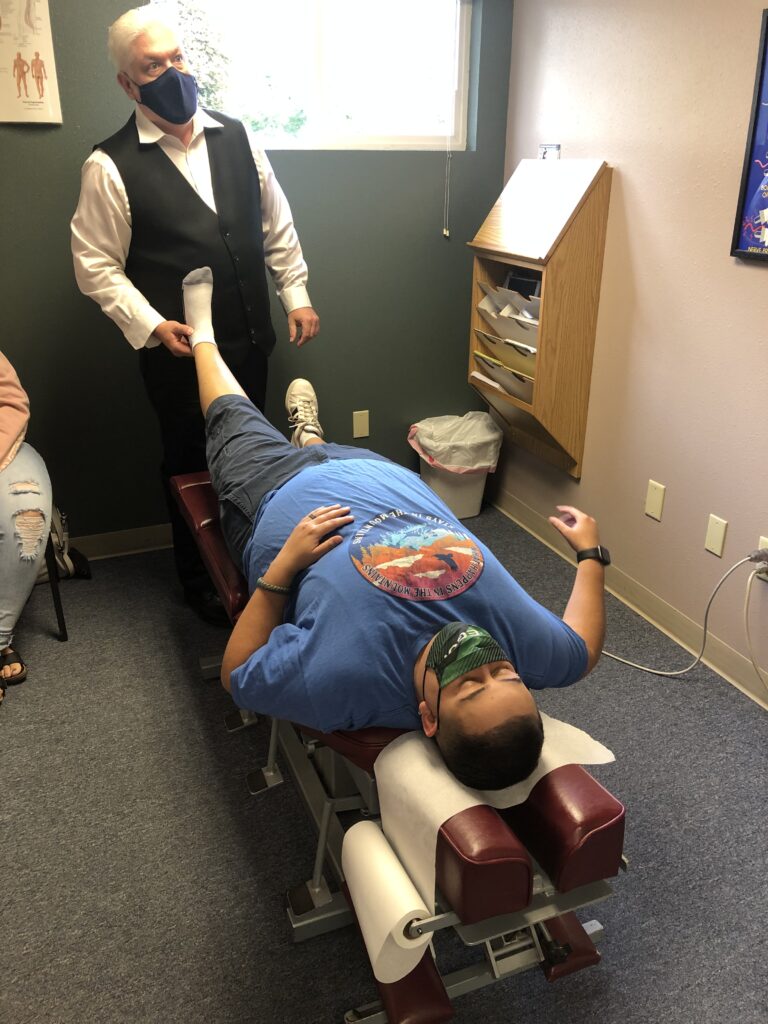You might be surprised at how simple adjustments in daily routines can transform your experience with anxiety. Many individuals have discovered that incorporating structured morning rituals, practicing mindfulness, or even making small shifts in their environments can lead to significant calm. As you consider these real stories, you may find yourself wondering what changes could work for you. What if the key to managing your anxiety lies in these seemingly minor adjustments? The journey to understanding how these modifications can impact your life is just beginning.
Embracing Morning Routines
Starting your day with a structured morning routine can greatly reduce anxiety and set a positive tone for the hours ahead. By creating a consistent pattern each morning, you're not only signaling to your brain that it's time to start the day, but you're also instilling a sense of control. This predictability can be incredibly comforting when anxiety tries to take the reins.
Begin by identifying activities that help you feel grounded. Maybe it's a quick workout, meditation, or simply enjoying a cup of coffee while journaling. Whatever it is, prioritize those moments. Set aside time for each activity, so you're not rushing through your morning. You might find that even a 10-minute stretch or a brief walk can make a significant difference in how you approach the day.
Also, consider the power of planning. Take a few minutes to outline your goals for the day. Write down your top three priorities, and notice how this simple act can ease your mind. You'll feel more focused and less overwhelmed when you know what you need to tackle.
Additionally, limit distractions during your morning routine. Put your phone away and resist the urge to check emails or social media. By cultivating a peaceful start, you'll create a mental buffer against the stresses that may come later.
The Power of Mindfulness
Mindfulness can be a powerful tool in managing anxiety. By practicing various techniques, you can experience its benefits and learn to integrate mindfulness into your daily life.
Let's explore how these practices can transform your approach to stress and enhance your overall well-being.
Mindfulness Techniques Explained
The practice of mindfulness offers powerful techniques to help you manage anxiety effectively. One technique is focused breathing. By concentrating on your breath, you anchor yourself to the present moment. Inhale deeply through your nose, hold for a few seconds, and exhale slowly through your mouth. This simple act calms your nervous system and reduces racing thoughts.
Another technique is body scanning. Find a quiet spot, sit or lie comfortably, and mentally scan your body from head to toe. Notice any tension or discomfort without judgment. Acknowledge these sensations and consciously release any tightness. This practice enhances your connection to your body and helps you recognize where anxiety manifests physically.
You can also practice mindfulness through mindful observation. Choose an object, like a flower or a candle flame, and focus solely on it. Observe its colors, textures, and movements. This exercise helps sharpen your awareness and pulls your mind away from anxious thoughts.
Lastly, try journaling your thoughts. Writing down your feelings can clarify your worries and provide a sense of relief.
Benefits of Practicing Mindfulness
Practicing mindfulness offers numerous benefits that extend beyond anxiety management. When you engage in mindfulness, you can experience a range of positive effects on your mental and emotional well-being.
Here are four key benefits you might enjoy:
- Increased Focus: Mindfulness helps you concentrate better, allowing you to stay present and engaged in tasks.
- Enhanced Emotional Regulation: By becoming more aware of your thoughts and feelings, you can respond to them more effectively instead of reacting impulsively.
- Improved Relationships: Practicing mindfulness can enhance your empathy and communication skills, leading to healthier interactions with those around you.
- Greater Resilience: Regular mindfulness practice builds your ability to cope with stress, enabling you to bounce back more easily from challenges.
These benefits can transform your daily life and help you navigate anxiety more effectively.
By making mindfulness a part of your routine, you're not just managing anxiety; you're cultivating a more balanced, fulfilling existence.
Integrating Mindfulness Into Daily Life
Although life can often feel overwhelming, integrating mindfulness into your daily routine can create moments of calm and clarity. Start by setting aside just a few minutes each day for mindfulness practice. You can find a quiet spot, close your eyes, and focus on your breath. Notice how each inhale and exhale grounds you in the present moment.
Incorporate mindfulness into everyday activities, too. When you eat, really savor your food; pay attention to the flavors and textures. During your daily commute, switch off distractions and focus on the sights and sounds around you. You'll be amazed at how these simple shifts can enhance your awareness.
Remember, mindfulness isn't about achieving a perfect state of relaxation. It's about acknowledging your thoughts and feelings without judgment. When anxiety arises, take a moment to pause, breathe, and reconnect with your surroundings.
You can also use mindfulness apps or guided meditations to help you stay on track. Over time, these practices will weave themselves into the fabric of your life, making it easier to navigate challenges with a calm mind and a balanced heart.
Embrace the power of mindfulness, and watch as it transforms your daily experience.
Environment Makeovers
Creating a calming environment can greatly reduce anxiety levels and promote a sense of well-being. When you feel overwhelmed, the space around you can either exacerbate or alleviate your stress.
By making simple adjustments, you can transform your environment into a haven of tranquility. Here are four key changes you can make:
- Declutter Your Space: A tidy environment can lead to a clearer mind. Remove items that you no longer need or that cause you stress.
- Incorporate Nature: Bringing plants into your space can create a serene atmosphere. Studies show that greenery can help lower anxiety and improve mood.
- Adjust Lighting: Bright, harsh lights can increase tension. Opt for softer lighting options like lamps or candles to create a warm, inviting glow.
- Choose Calming Colors: Paint your walls or add decor in soothing colors like soft blues or greens. These hues are known to promote relaxation and peace.
Social Connections and Support
When you're dealing with anxiety, having a strong support system can make all the difference.
Connecting with others helps you build trusting relationships that foster understanding and encouragement.
Community support not only eases your burden but also empowers you to face challenges together.
Importance of Community Support
Community support plays an essential role in managing anxiety, as strong social connections can greatly impact your mental well-being.
When you feel supported, you're less likely to feel isolated, which can exacerbate anxiety.
Here are four ways community support can help you:
- Emotional Validation: Sharing your feelings with others allows you to feel understood, reducing the burden of anxiety.
- Practical Assistance: Friends or family can provide help with daily tasks, making life feel more manageable during tough times.
- Encouragement: A supportive community can motivate you to seek professional help or practice self-care strategies.
- Shared Experiences: Connecting with others who face similar challenges can foster a sense of belonging, making you feel less alone.
Building Trusting Relationships
Strong social connections lay the groundwork for building trusting relationships, which are vital for managing anxiety. When you cultivate trust with friends, family, or colleagues, you create a safe space where you can express your feelings and fears without judgment. This openness helps to alleviate anxiety, making it easier for you to navigate life's challenges.
To build these trusting relationships, start by being open and honest. Share your thoughts and feelings, and encourage others to do the same. Active listening is important—show genuine interest in what others say, and validate their emotions. You'll find that mutual support fosters deeper connections.
Also, consistency is key. Regularly check in with your loved ones, whether through calls, texts, or face-to-face meetings. This shows that you care and are invested in the relationship. Remember, trust takes time to develop, so be patient with yourself and others.
Lastly, don't hesitate to seek out new connections. Join groups or communities that align with your interests. By surrounding yourself with supportive individuals, you enhance your ability to manage anxiety and build a network of trusted relationships.
Nutrition and Exercise Changes
Incorporating mindful nutrition and regular exercise into your routine can greatly alleviate anxiety symptoms. When you prioritize what you eat and how you move, you empower yourself to manage stress more effectively.
Here are four key changes you can make to boost your mental well-being:
- Mindful Eating: Focus on whole foods like fruits, vegetables, lean proteins, and whole grains. These nutrient-dense options fuel your body and brain, promoting a stable mood.
- Hydration: Don't underestimate the power of water. Staying hydrated can improve concentration and reduce feelings of anxiety. Aim for at least 8 cups a day, adjusting based on your activity level.
- Regular Exercise: Aim for at least 30 minutes of moderate exercise most days of the week. Activities like walking, running, or yoga release endorphins, which act as natural mood lifters.
- Limit Caffeine and Sugar: High caffeine and sugar intake can aggravate anxiety symptoms. Try to reduce these stimulants and opt for herbal teas or snacks with healthy fats to maintain energy levels without the crash.
Personal Reflection and Journaling
Through the practice of personal reflection and journaling, you can gain valuable insights into your thoughts and emotions, helping to alleviate anxiety. When you take time to write down your feelings, you provide yourself with a safe space to explore what's on your mind. This process can help you identify triggers and patterns in your emotions, making it easier to address them.
Start by setting aside a few minutes each day to write. Don't worry about grammar or structure; just let your thoughts flow. You might begin with a simple prompt, like "Today, I felt…" or "What's been bothering me lately is…" This can help you focus your thoughts and guide your reflection.
As you write, pay attention to your emotions. Acknowledge any feelings of anxiety without judgment. By putting these feelings on paper, you create distance between yourself and the anxiety, allowing you to analyze it more objectively. You might discover that some of your fears are unfounded or exaggerated.
Over time, you'll likely notice recurring themes in your writing. Use these insights to develop coping strategies or address the root causes of your anxiety. Journaling can also serve as a record of your progress, helping you see how far you've come.
Incorporating personal reflection and journaling into your routine can empower you, giving you the tools to better understand and manage your anxiety.
Conclusion
By embracing small adjustments in your daily routine, you can greatly calm anxiety and enhance your well-being. Morning rituals, mindfulness practices, a soothing environment, and strong social connections all play essential roles in managing stress. Don't underestimate the power of nutrition and exercise, as they can profoundly influence your mood. Finally, personal reflection through journaling helps you understand your emotions better. Start making these changes today, and you'll likely find greater peace and resilience in your life.



